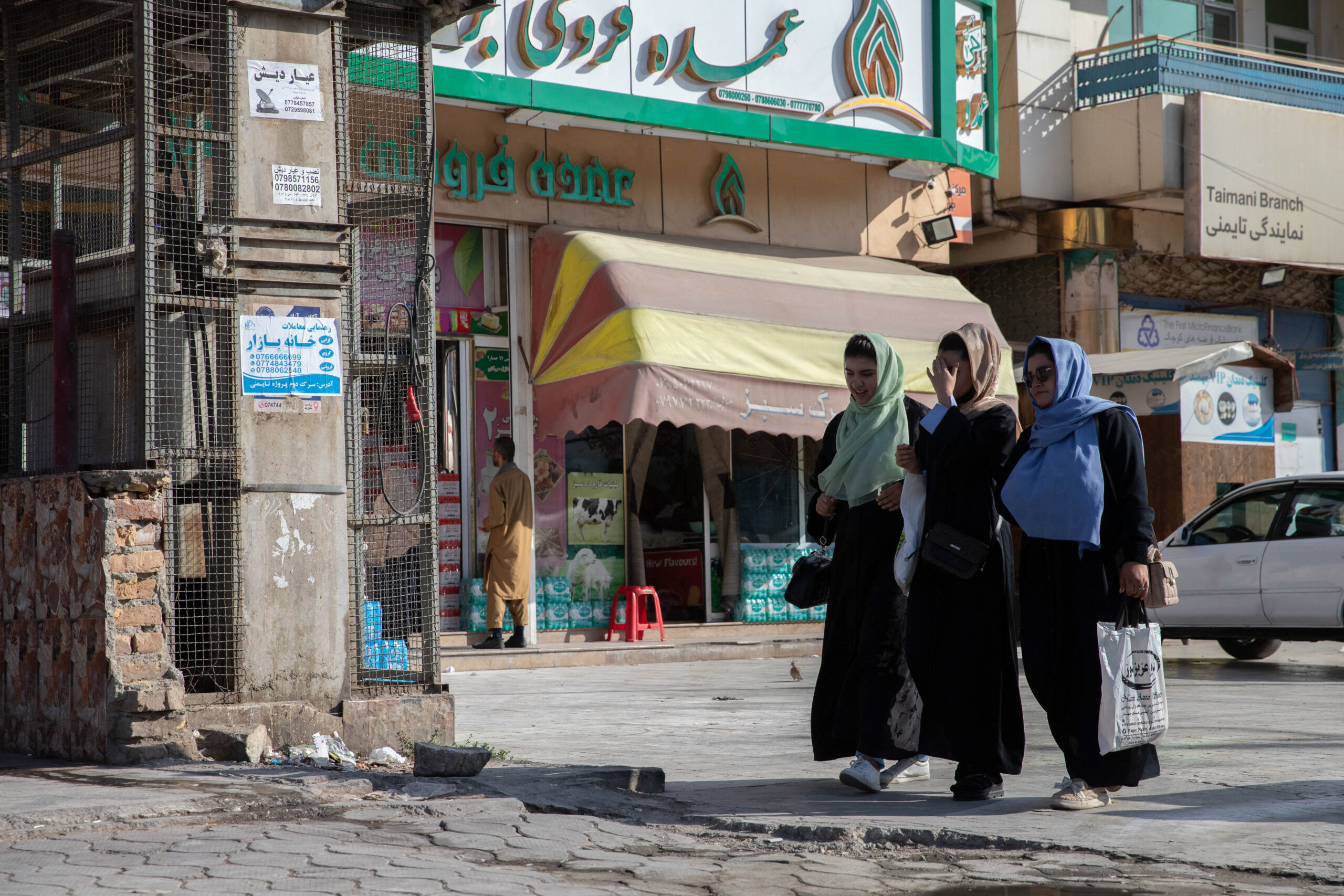AFGHANISTAN—In the four years since the Taliban returned to power in Afghanistan, the regime’s atrocities have stripped away every space I once knew—invading both the public and private spheres of my existence. I had no choice but to resist. In writing this article, I hope not only to document my ongoing experience, but also to reflect the voices of my Afghan sisters as we struggle together to defy our oppressors and their attempts to erase our humanity.
After their first press conference in August 2021, the Taliban made its vision clear. The group’s leaders shut schools, imposed a mandatory hijab, and banned women from working in nearly all jobs except those in primary education and healthcare. Since that time, their repression has only increased, as their supremacist ideology cannot coexist with a society where women are equal, educated, and free.
The systematic, institutionalized discrimination and oppression enforced by the Taliban is not a cultural or religious act and should not be disguised or excused as such. In October 2024, the Taliban’s minister for the promotion of virtue and prevention of vice even ruled that adult women may not let their voices be heard by other adult women—not even to recite the Quran or perform religious recitations. While claiming to rule based on Islam, the Taliban has effectively criminalized our expression of faith, denying us the right to practice our religion freely.
My fellow detainees and I were kept for hours in the blazing summer heat, subjected to humiliating, hateful insults by our captors.
From the beginning, many of us Afghan women have taken to the streets to defend our rights, enduring beatings, arrests, torture, duress, and death. Over these past four years, we have also endured a profound form of social and psychological death, battling severe mental-health challenges, poverty, unemployment, despair, and hopelessness. Each new Taliban restriction pushes women and girls further into confinement, reducing us solely to the roles of caregivers, homemakers, and reproducers.
The big dreams I once carried—including the goal of one day leading my country—were taken from me overnight when the Taliban seized control of Afghanistan. So I joined the protests. For me, protesting is not just a form of reaction but a deep affirmation that I have agency and the will to survive. But I’ve paid a high price. When the Taliban first arrived four years ago, I joined a protest outside my office. The next day, my office manager told me, “Having you here is too much of a risk. It’s better you find another place to work.” I left my job that day feeling isolated and vulnerable. Unemployment only added to my struggles. I have also had to relocate numerous times due to the Taliban’s threats to harm me and my family, moving between neighborhoods and districts throughout Kabul and several times heading to other provinces.
In those early days of the Taliban takeover, we found the courage to stand firm in our beliefs. We understood that we were facing a terrorist group establishing a regime without limits to its repression and violence. During one of our first peaceful protests against the mandatory hijab order, we were attacked by the Taliban. The protest descended into chaos as we were met with gunfire and beatings. I was eventually detained with other women, captive to Taliban military officials who had no respect for our dignity, our rights, or any law. My fellow detainees and I were kept for hours in the blazing summer heat, subjected to humiliating, hateful insults by our captors. After hours of physical and psychological torture, the Taliban officials forced us to pledge that we would no longer participate in protests. What they planted in us that day was not fear but an even deeper determination to resist this regime’s dogmatic misogyny, which views us as less than human.
When the Taliban militarized our streets, we took our resistance indoors: writing, chanting, and singing “Bread, Work, and Freedom,” so our voices, criminalized by the Taliban, could awaken the world’s conscience. Many of us began running underground schools, some resisted online through art, and others began secretly documenting the Taliban’s atrocities in the hope of one day holding the group accountable by bringing cases against the Taliban at the International Criminal Court and the International Court of Justice, codifying gender apartheid as a crime against humanity under international law, or through another international mechanism.
The documentation work to which I contribute involves recording Taliban decrees and abuses—along with the personal experiences behind them—to preserve the truth and ensure that victims’ voices are not silenced. This work is a response to the reality that here, inside Afghanistan, there is no functioning justice system. That is why we must turn to international law to hold the Taliban accountable. As those who participate in this work take on the risks of doing so, I urge policymakers to fulfill the promise of international law by drawing on documentation as evidence to pursue accountability for the Taliban’s crimes.
The totality of the Taliban’s atrocities can only be fully understood through a framework of gender apartheid, and the international community should acknowledge that these atrocities are crimes against humanity. Today, what we see is the slow, soft recognition of the Taliban regime by other countries. But it is accountability, not recognition, that is needed.
We are fighting for our rights. We need all people of conscience to act in solidarity, amplify our cause and our call, and work together for our shared humanity.
This article is part of the Inside the Taliban’s Gender Apartheid series, a joint project of the Civic Engagement Project and the Atlantic Council’s Strategic Litigation Project.
Sara’s story was translated by Metra Mehran, the gender and policy advisor for the Strategic Litigation Project and a member of the End Gender Apartheid campaign.

